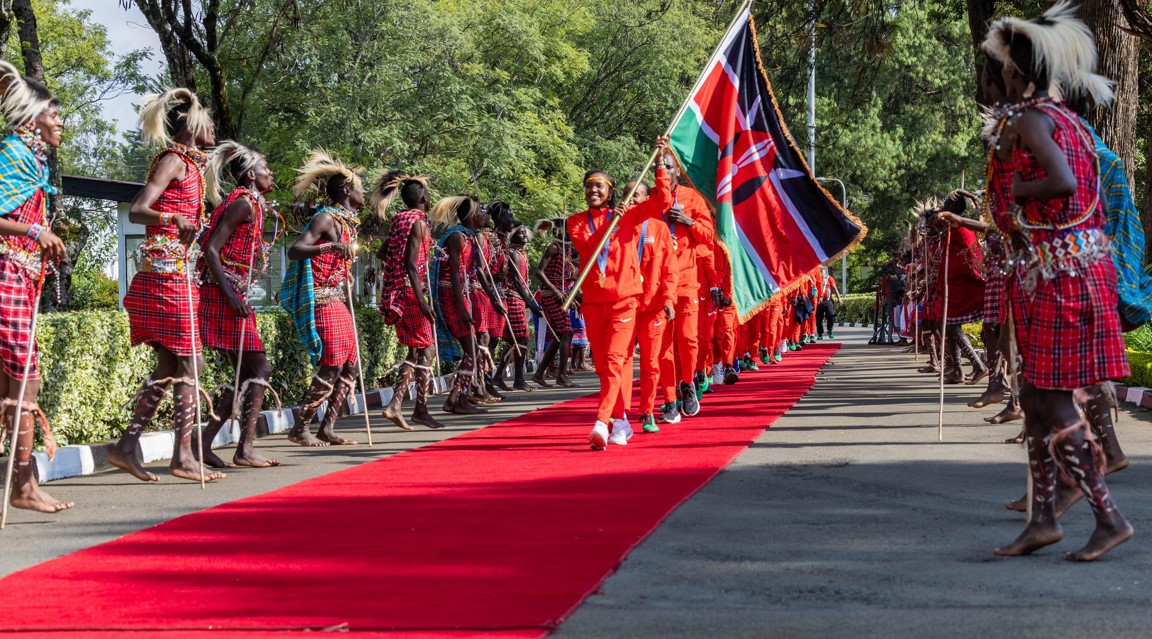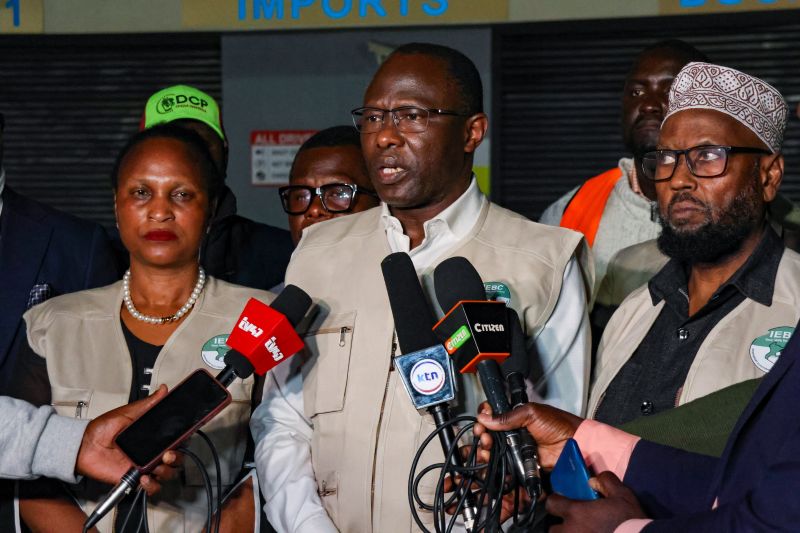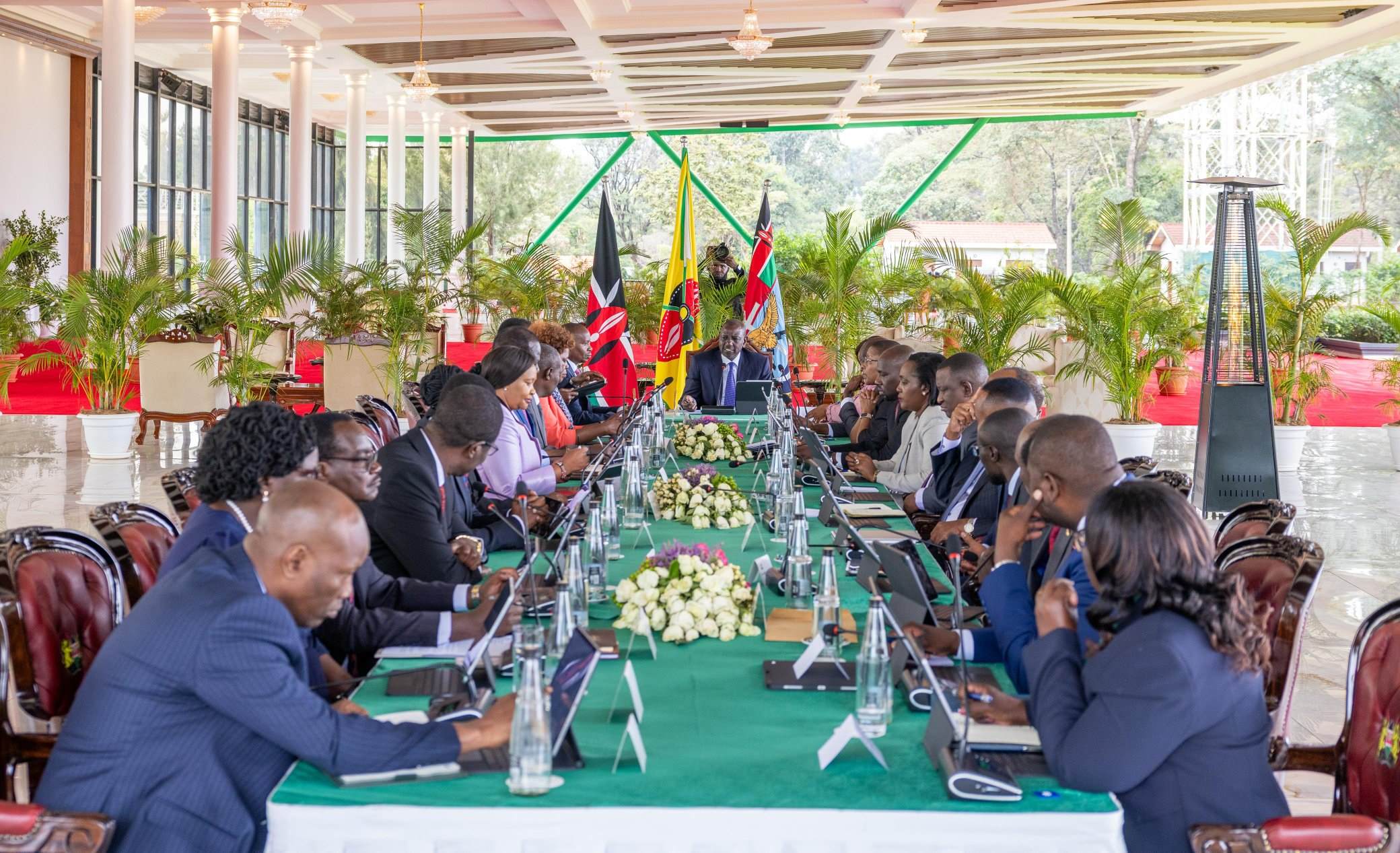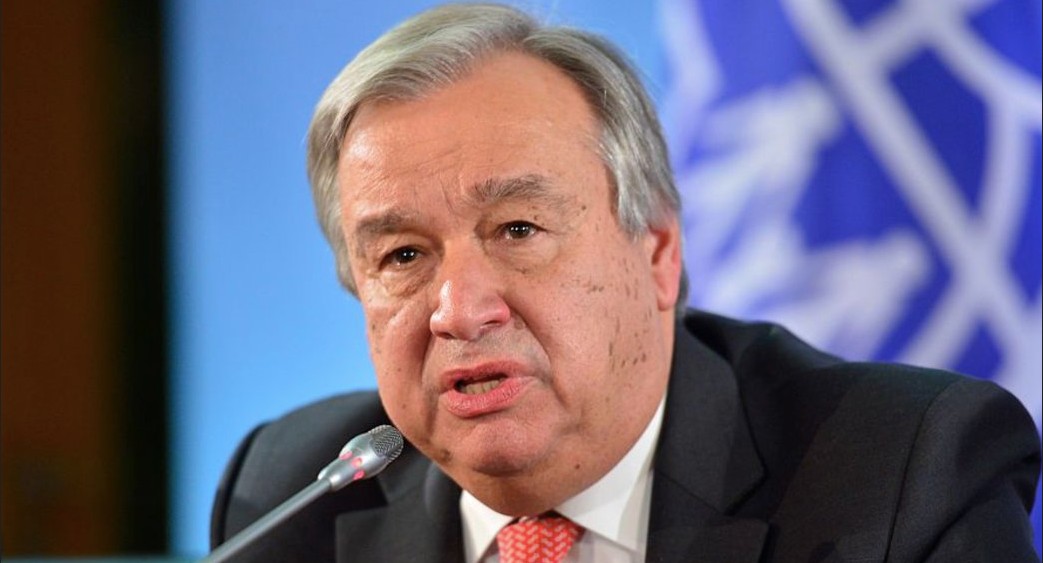Paris 2024: Data proves Kenya needs to diversify its sporting portfolio

Despite Kenya’s historic strength in athletics, data from the 2024 Paris Olympics reveals a pressing need for the country to diversify its sporting focus if it hopes to remain competitive on the global stage.
The 2024 Paris Olympic Games continue to generate numerous talking points, even six days after they ended. Countries and athletes are reviewing their performance at the 33rd Olympiad, celebrating achievements and regretting missed opportunities.
This collective post-mortem of the recently concluded Olympics is yielding fascinating insights, none more mind-blowing than the effort by Alexis, a Spanish sports statistician, to enlighten the world with the most intriguing statistical tidbits from the 2024 Paris Olympic Games.
More To Read
- NOCK warns Kenyans against buying counterfeit Team Kenya merchandise
- Athletics Kenya names strong 58-member squad for 2025 Tokyo World Championships
- Kenyan junior stars fired up for African athletics showpiece in Nigeria
- KNPC and Government promise change ahead of 2028 Paralympic Games
- Kenya concludes Paralympics campaign with one silver
- Kenenisa Bekele opens up about Paris Olympics struggles and future plans
Alexis, known as @2010MisterChip on Twitter (X), shared the information in his native Spanish, but the platform’s translation feature made it accessible in English.
HILO RESUMEN #Paris2024 - 01
— MisterChip (Alexis) (@2010MisterChip) August 12, 2024
▪️ Total eventos: 329
▪️ NOCs con medalla: 92
▪️ NOCs con oro: 64
▪️ Medallas entregadas a NOCs: 1.044 (329🥇330🥈385🥉)
▪️ Deportistas con medalla: 2.016
▪️ Deportistas con oro: 676
▪️ Medallas entregadas a deportistas: 2.271 (734🥇743🥈794🥉) pic.twitter.com/kIlBgVrnZg
By now, most people likely know that the 2024 Paris Olympic Games featured 329 events, with 92 National Olympic Committees (NOCs) winning at least one medal, and 64 of them proudly claiming at least one gold. This information is easily deductible from the medal table.
However, few may know that, according to Alexis’ data, 2,016 athletes won at least one medal, with 676 of them being gold medalists. Overall, 1,822 athletes won just one medal.
Kenya’s Beatrice Chebet (two gold medals) and Faith Kipyegon (one gold and one silver) were among 155 athletes who won two medals. Dutch long-distance runner Sifan Hassan (two bronze medals and one gold) was one of 24 athletes who bagged three medals.
Nine athletes went home with four medals, while the number of athletes who won five medals did not exceed five. Chinese swimmer Yufei Zhang won the most medals, with six—five bronze and one silver in swimming competitions.
Going deeper, Alexis’ data reveals that female athletes won more medals (1,145) than their male counterparts (1,126). However, male medalists (1,026) outnumbered female medalists (990). Also, male athletes bagged more gold medals (342) than female athletes (334).
French swimmer Léon Marchand was the king of the medals among male athletes with his four golds. Marchand also won a bronze medal, bringing his total haul to five. Among female athletes, the queen of the medals was American swimmer Torri Huske, who won three gold medals and two silver.
It is evident from this data that if Kenya focuses more on the growth and development of swimming, the country could produce athletes capable of winning medals in multiple events.
Arisa Trew of the United States, who won a gold medal in a skateboarding event, was the youngest female medalist—and the youngest overall—at the 2024 Paris Olympic Games. Trew was 14 years and 86 days old when she won her gold medal.
At 16 years and 215 days old, Quincy Wilson, also an American athlete, was the youngest male medalist after his gold medal victory with his teammates in the 4x400 metres relay.
Counting only individual events, Alexis’ posts reveal that British rock climber Toby Roberts, at 19 years and 147 days old, left the French capital with the distinction of being the youngest male gold medalist. Japanese rock climber Sorato Anraku, at 17 years and 269 days old, was the youngest male medalist in an individual event, winning a silver medal.
The achievements of these four athletes further emphasize why Kenya should embrace the growth and development of sports that, though unconventional in our part of the world, are quite popular among the nation’s youth.
Still on age, American female equestrian Laura Kraut, at 58 years and 262 days old, was the oldest medalist overall, having won silver in an equestrian team event. At 55 years and 13 days old, German equestrian Isabell Werth was the oldest gold medalist overall, following success in an equestrian team event.
Among male athletes, the oldest gold medalist was Danish handball player Hans Lindberg, 43 years and 10 days old. The oldest male medalist was German Carl Hester, who won bronze in a team equestrian event at 57 years and 35 days old.
These stats on the oldest and youngest medalists at the 2024 Paris Olympic Games provide a lesson for Kenya: to feature in such conversations, the country must consider diversifying its sporting interests.
Four athletes—Croatian male rower Valent Sinkovic (gold medal), American female footballer Sophia Smith (gold medal), Mexican female archer Angela Ruiz (bronze medal), and Dutch female water polo player Laura Aarts (bronze medal)—were the only athletes to win medals on their birthdays at the 2024 Paris Olympic Games.
Remaining on birthdays, Alexis’ data also revealed yet another mind-blowing fact—athletes born in January won the most medals (226), perhaps attesting to the superiority of Faith Kipyegon, who has three consecutive gold medals in the women’s 1,500 metres at the Olympic Games. Kipyegon was born on January 10, 1994.
June, the month in which Abraham Kibiwot (bronze, men’s 3,000 metres steeplechase) and Mary Moraa (bronze, women’s 800 metres) were born, followed with 204 medals. August, the birth month of Kenya’s gold medalist in the men’s 800 metres, Emmanuel Wanyonyi, took third place with 202 medals.
Faith Cherotich’s bronze in the women’s 3,000 metres steeplechase was one of the 200 medals won by athletes born in July at the 2024 Paris Olympic Games.
Kenya had no medalists born in April or May, which saw 197 and 194 medals won, respectively. However, the nation’s golden Beatrice Chebet (gold medals in the women’s 10,000 metres and the women’s 5,000 metres) teamed up with men’s marathon bronze medalist to boost the medal tally of March babies to 187.
Hellen Obiri, born on December 13, 1989, accounted for one of the 182 medals won by December babies with her bronze in the women’s marathon. Ronald Kwemoi, silver medalist in the men’s 5,000 metres, was the lone Kenyan among September babies, who won 181 medals.
Similar to April and May, Kenya had no medalists born in February, October, or November, which won the least medals—175, 165, and 158, respectively.
The other stats by Alexis reveal how much Kenya is grateful to its 2024 Paris Olympic Games medalists. Kenya was represented at the games by 72 athletes; a number that would have easily put the country in the list of shame had all 72 returned home without winning a single gold medal, or worse, empty-handed.
Such is the predicament that befell countries like India (112 athletes), Mexico (108), Turkey (101), Colombia (88), and Nigeria (86), who topped the list of countries that sent the most representatives to Paris and failed to win at least one gold medal.
While India, Mexico, Turkey, and Colombia managed to win at least a silver or bronze medal, Nigeria, Africa’s most populous country with 250 million people, topped a more appalling list—countries that sent the most representatives to Paris and failed to win at least a medal.
If such a catastrophe had befallen Kenya, with its population of 50 million people, the country would have been second on that list, followed by Finland (57), Venezuela (31), Latvia (29), Paraguay (29), Uruguay (27), Angola (25), and Guinea (25).
It would have been shameful for Kenya to feature on that list, as other than Angola (37 million people), Venezuela (28 million), and Guinea (14 million), the remaining countries have a population of less than seven million, making their failure to produce champion Olympians easier to comprehend than for a case like that of Nigeria or India, the world’s most populous country with 1.4 billion people, which have a larger talent pool to pick from.
Recently, there have been strong calls for Kenya to enter more sports at the next Olympic Games in Los Angeles, and Alexis shared data that can help drive more emphasis on Kenya diversifying its sporting activities.
The Netherlands, a country of 18 million, sent 289 athletes to Paris, and 107 of them returned home with at least one medal. The European country won medals in 10 events and, tied at 37% with Kyrgyzstan (6/16), only North Korea (50%, 7/14), the USA (41%, 255/619), Fiji (39%, 14/36), and Great Britain (38%, 131/242) had a higher percentage of athletes returning home with at least one medal.
Kenya, on the other hand, won all its 11 medals from athletics events and had only seven medalists in total, accounting for 10% of the total representation. This figure does not paint a promising picture of the state of our sports, highlighting the need for greater efforts to grow and develop sports in the country.
Top Stories Today











































